What Is the AI Project Cycle refers to a systematic process that manages the entire development of an artificial intelligence solution, starting from problem identification to deployment and ongoing management. This iterative cycle ensures that AI projects are not only robust and responsive but also continuously deliver long-term value to businesses.
What Are the Key Stages of the AI Project Cycle?
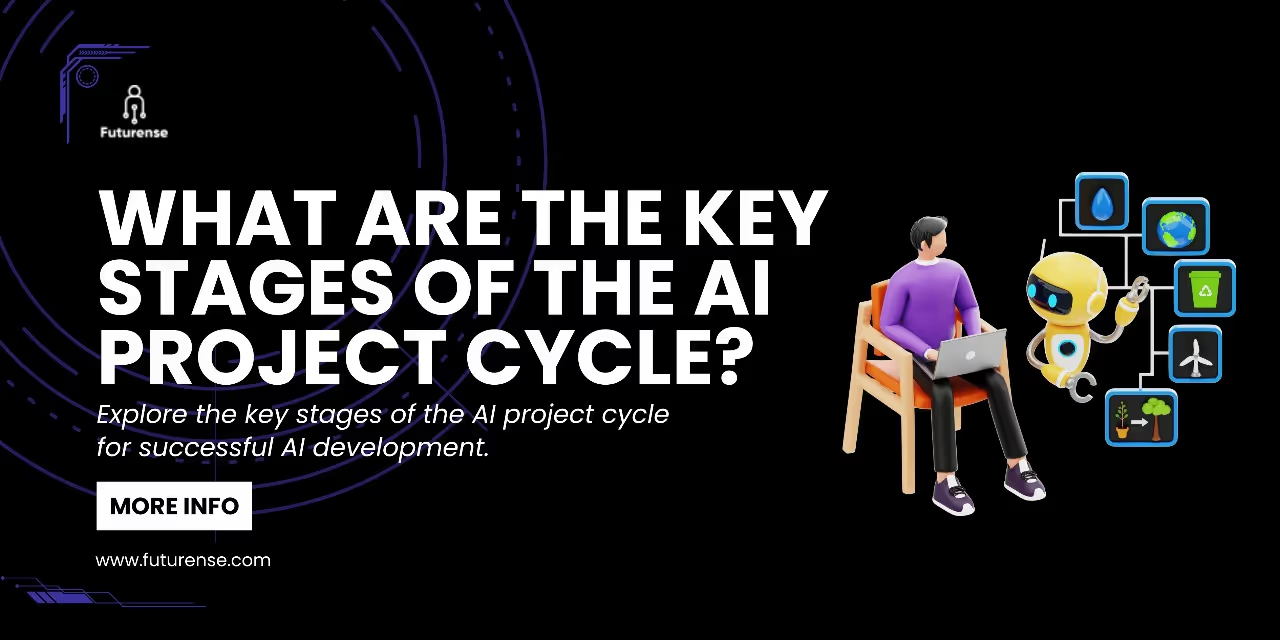
The AI project cycle takes six distinct yet highly interrelated phases, namely Problem Definition and Scoping,Data Collection and Preparation, AI Model Development, Model Evaluation, AI Model Deployment and Integration, and Continuous Monitoring and Maintenance. These are important to understand successful project deployment in the AI.
How Is Problem Definition and Project Scoping Done in AI?
Problem Definition and Project Scoping is about well-defining the business problem or opportunity that an AI solution is going to address. It begins with defining the objectives, scope, success factors, and a technical and business feasibility study of the project.
- Objective: Break down a general business problem (e.g., "enhance customer support") to a specific, AI-solvable challenge (e.g., "employ an AI chatbot to automate 30% of frequent customer questions").
- Activities: Stakeholder interviews, identification of key performance indicators (KPIs), resource planning, and preliminary ethical consideration of probable AI impacts.
- Relevance to Roles: AI Product Managers, AI Strategy Consultants, and AI Project Managers have significant roles in this regard to ensure business alignment and project feasibility.
- Certifications: PMI certification courses in specialized subjects like Project Management Institute or AI Project Management would be valuable.
Why Is Data Collection and Preparation a Critical Stage?
Data collection is the process of obtaining relevant datasets, and data preparation is the process of cleaning, transforming, and labeling this data, thus it's very crucial as it decides the performance of the AI model. This stage ensures that the data is prepared for training and avoids the "garbage in, garbage out" scenario.
- Objective: Assemble a high-quality, representative, and clean dataset suitable for training AI models.
- Activities: Sourcing data (internal, external, APIs), data cleaning (handling missing values, outliers), data transformation (normalization, scaling), feature engineering, data labeling/annotation, and ensuring data privacy compliance.
- Relevance to Roles: Data Analysts and Data Scientists spend significant time in this phase, often earning ₹ 6-15 LPA in India depending on experience and skills.
- Certifications: Google Data Analytics Professional Certificate, Power BI Data Analyst Associate, or Data Camp Data Analyst with Python Track.
What Does AI Model Development Involve?
AI Model Development is where the central AI model is structured, constructed, and trained using the prepared data, choosing the appropriate algorithms and frameworks to learn patterns and make predictions or decisions. It is the technical core of the AI project.
- Objective: Create an AI model that learns from the collected data and solves the defined problem.
- Activities: Algorithm selection (e.g., deep learning, machine learning, natural language processing models), model architecture design and training the model on the prepared dataset with fine-tuning of hyperparameters to optimize performance.
- Relevance to Roles: Data Scientists and Machine Learning Engineers are primary contributors here, with salaries often ranging from ₹ 8-25 LPA for experienced professionals in India. Data Scientists and Machine Learning Engineers have been in demand for the last few years with early-career salaries starting at ₹9 LPA and ₹25 LPA for an experienced professional.
- Certifications: Microsoft Certified: Azure AI Engineer Associate, Applied Generative AI Specialization, or Deep Learning. AI's TensorFlow Certificate.
How Is AI Model Evaluation Performed?
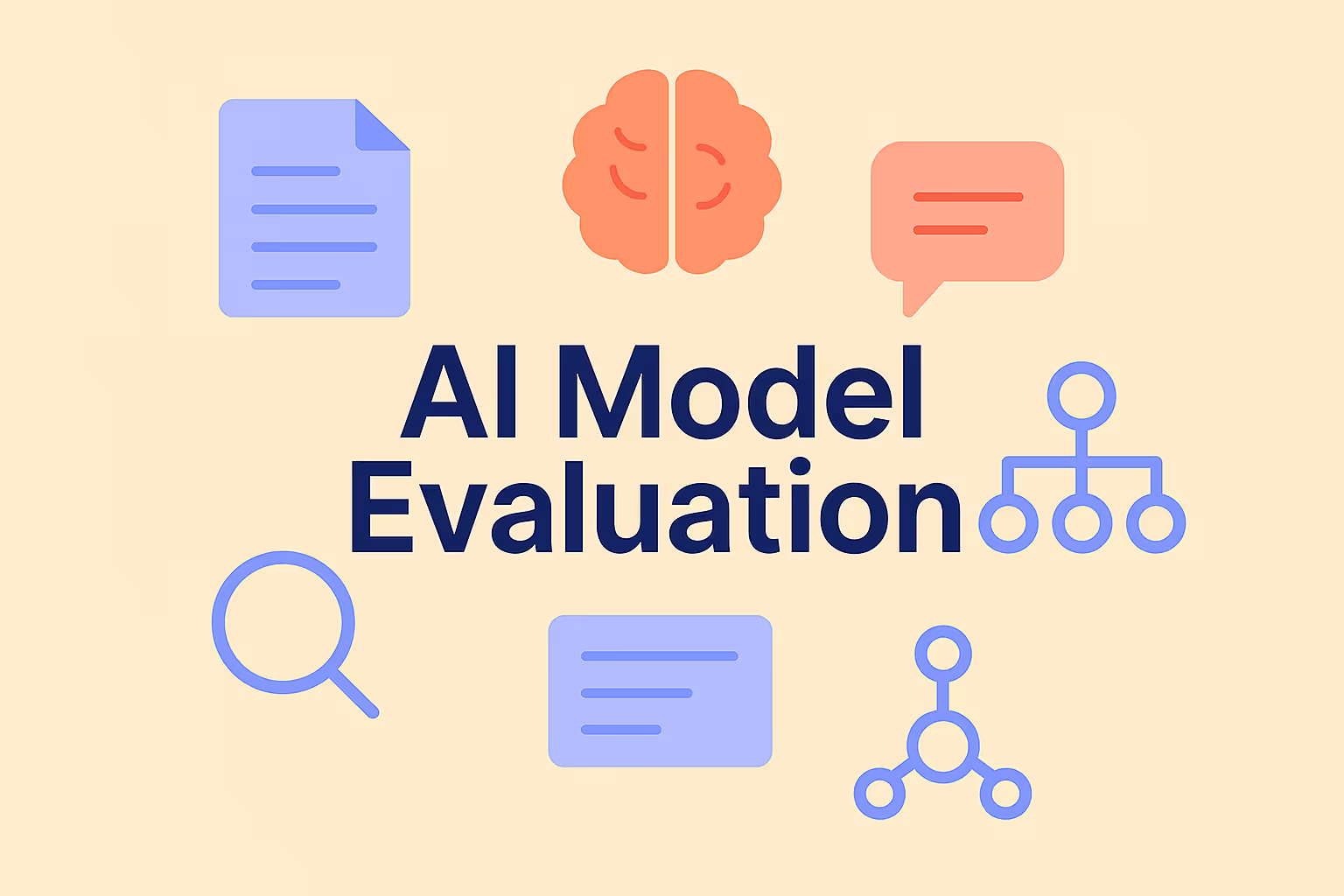
AI Model Evaluation is conducted after the AI model development phase and is used to test the model on unseen data to ensure that the model is not overly-fitted. This phase also determines the model’s strengths, weaknesses and biases before it is deployed in the market.
- Objective: Test the model’s accuracy, reliability and relevance in real-world scenarios.
- Activities: Testing on validation and test datasets, calculating performance metrics (e.g., accuracy, precision, recall,F1-score for classification; RMSE for regression), bias detection (e.g., ensuring fair outcomes across different user groups), and comparing multiple model variations.
- Relevance to Roles: Quality Assurance Engineers, Data Scientists, and Machine Learning Engineers are crucial for this rigorous testing.
What Are the Steps for AI Model Deployment and Integration?
AI Model Deployment ensures smooth integration of the developed model in the production environment and makes it accessible for real-world use. This can be achieved by integrating it into an existing application, a new platform, or a business process.
- Objective: Successfully integrate the AI model from development to a functional, production-ready state.
- Activities: Developing APIs for model integration, setting up scalable infrastructure, containerization, ensuring security and compliance and often a stalled rollout or A/B testing to minimize risks.
- Relevance to Roles: MLOps Engineers, AI Engineers, and Solutions Architects specialize in this stage, commanding salaries typically between ₹ 10-30 LPA in India.
- Certifications: AWS Certified Machine Learning – Specialty, Google Cloud Professional Machine Learning Engineer, or specific MLOps certifications.
Why Is Continuous Monitoring and Maintenance Important in AI Projects?
Continuous Monitoring and Maintenance is vital in AI projects because AI models require ongoing oversight to track their performance, detect "model drift," and identify any anomalies, ensuring the model remains relevant and effective over time. Real-world data constantly evolves, necessitating this continuous attention.
- Objective: Sustain optimal model performance and adaptability to evolving real-world conditions.
- Activities: Real-time performance dashboards, regular retraining with fresh data, anomaly detection, version control for models, and establishing feedback loops from user interactions for further improvements. This includes AIOps practices for automated operations.
- Relevance to Roles: MLOps Engineers and AI Engineers are primarily responsible for this ongoing operational aspect.
- Certifications: Advanced Certification in AI Engineering & AIOps – IIT Roorkee specifically targets these skills.
What Career Opportunities Exist in the AI Project Cycle in India?
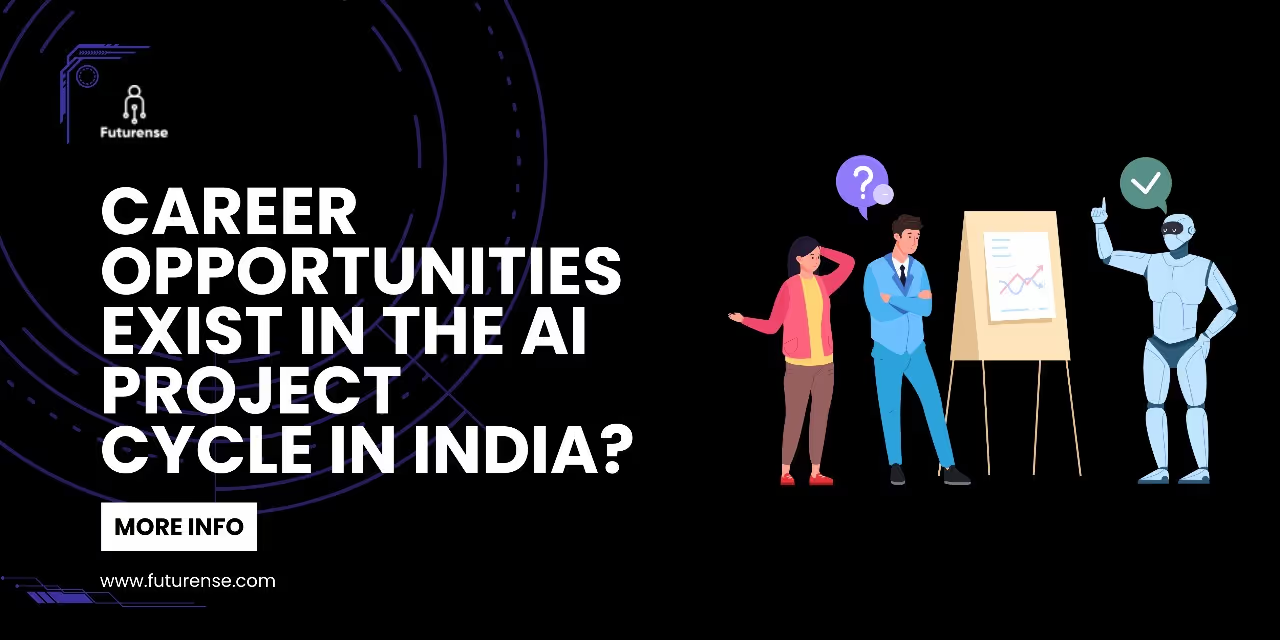
India’s rapidly expanding AI sector is producing career options in every aspect of the AI project lifecycle, and we see strong skill demand for professionals who can run and develop AI projects in India. These jobs can range from largely technical roles to attractive business and project management functions, often with attractive pay.
- AI Project Manager: Oversees the entire AI project lifecycle, ensuring timely delivery, resource allocation, and alignment with business goals. They typically earn ₹ 12-35 LPA.
- Data Scientist/Analyst: Crucial during data collection, preparation, and model development, focusing on data analysis, feature engineering, and model building.
- MLOps Engineer: Specializes in model deployment and continuous monitoring, focusing on automating pipelines, ensuring scalability, and maintaining models in production environments. An average salary in India for an MLOps Engineer can be ₹ 10-25 LPA.
- AI Consultant: Advises organizations on AI strategy, problem scoping, and implementation across various project stages.
- AI Product Manager: Guides AI product development from concept to launch, bridging technical capabilities with market needs.
Which Futurense Programs Teach AI Project Cycle Skills?
Futurense, with top IITs, offers a number of programs that create a track for you to build skills to be successful at every part of the AI project lifecycle, even if you have no coding background at all. The programs ensure that you have hands-on experience at managing and developing real-world AI projects.
- PG Diploma & MTech in Artificial Intelligence – IIT Jodhpur: This comprehensive program provides an understanding of AI concepts from data handling and model development to deployment strategies, crucial for managing complex AI projects.
- PG Certificate in GenAI & Agentic AI for Engineers – IIT Roorkee: This course focuses on cutting-edge Generative AI and Agentic AI, including building AI agents and full-stack development, directly contributing to the development and deployment phases of an AI project.
- Advanced Certification in AI Engineering & AIOps – IIT Roorkee: This program specifically emphasizes MLOps frameworks and AI engineering, vital for the deployment, integration, monitoring, and maintenance stages of the AI project cycle.
These programs incorporate practical, project-based learning and cover aspects like data handling, model building,MLOps, and strategic thinking necessary for AI project success.
Final Thoughts
Understanding What Is the AI Project Cycle is essential for anyone looking to thrive in the field of artificial intelligence. By mastering each stage—from problem identification to deployment—you’ll gain the clarity and structure needed to build impactful AI solutions. Whether you’re just starting your AI journey or aiming to advance your skills, a strong grasp of the AI project cycle will set you apart and guide you toward success.
Frequently Asked Questions (FAQs)
What is the difference between AI project management and traditional project management?
AI Project Management introduces nuances that are not present in traditional project management such as managing data quality, model drift, ethical considerations, and iterative experimental development cycles instead of traditional linear project development.
Can someone without a technical background manage an AI project?
While being tech-savvy is a benefit, the most important skills to deliver successful AI projects is being organized and competent in project management, having business acumen, and an understanding of basic AI principles. The project manager would rely on technical leads for technical specifics.
How long does a typical AI project cycle take?
The duration varies widely based on complexity. Simple projects might take a few weeks, while complex, enterprise-level AI solutions can take several months to over a year, involving multiple iterations and refinements.

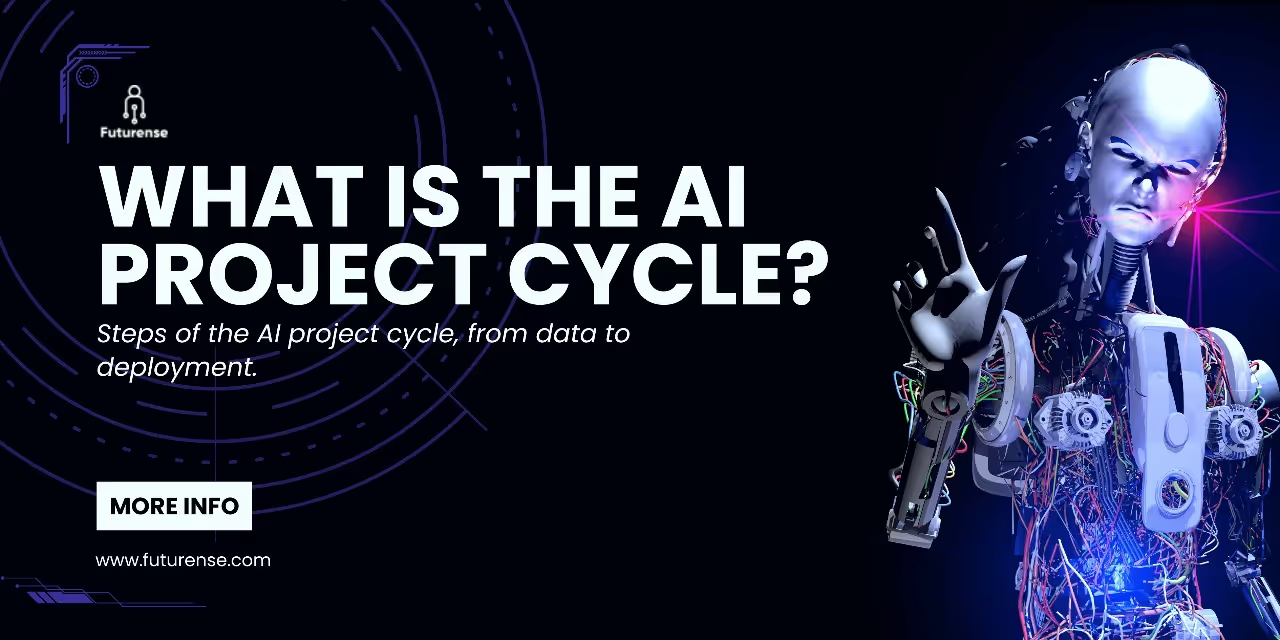





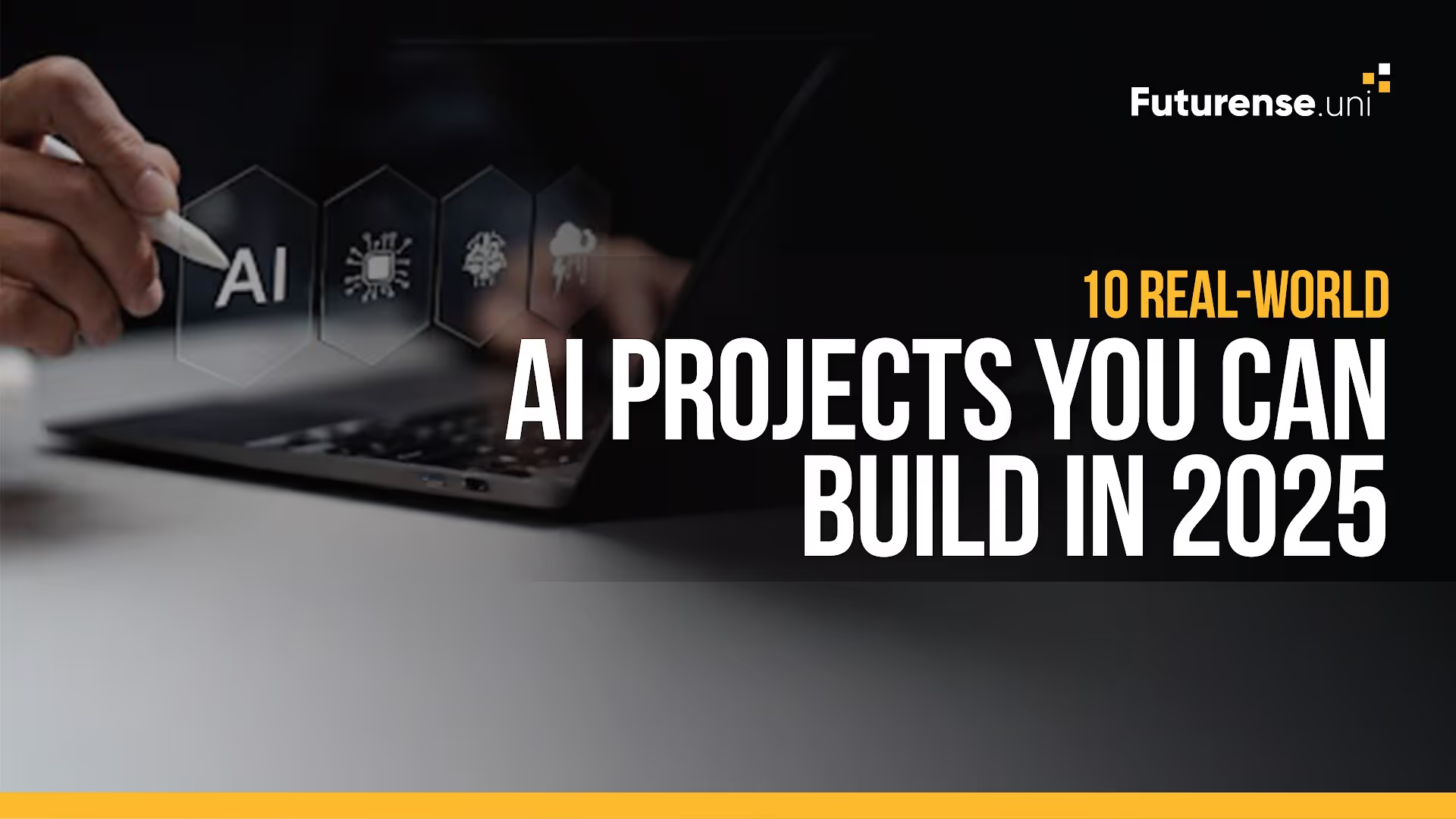
.avif)